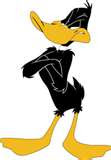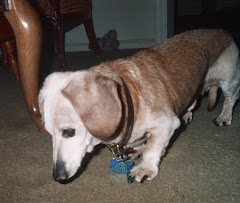I’m absolutely the best procrastinator I
know. When I’m working on a play – writing serious stuff – I will do just about
anything to avoid the actual work. (I’m from the Dorothy Parker school of
thought. She said, “I hate writing. I love having written.”)
Anyway, I’ve developed a practice that
gives the appearance of intelligent and experienced planning. And I need it.
Honestly, any distraction at all – a gnat crawling across the screen – will
throw me into totally different directions. Any perceived change (should the
page number be in bold or italics?) will stop me dead in my tracks
… (Oscar Wilde once remarked, “I had a good day today. This morning I took out
a comma and this afternoon I put it back in again.”)
In the past, when I used to run into
creative walls, I would go out and walk around the block. Sometimes I could be
mere feet outside my door when the proper thrust of eloquence would be revealed
to me. (The alleged storyline, we assume, is somewhat already in place.) Other times
I would walk farther. I can’t tell you how many times I’ve come out of my rhetorical
stupor by wondering where I was.
But lately I’ve developed a new and by far
less embarrassing procedure. I call it my “play within a play,” and here’s how
it works; I’m flinging dialogue down a page as hard and fast as I can, when
suddenly a character will say something that has the potential to be another
work entirely. If I ignore it, I’m still focused on the job at hand. If I pause
– for even a key stroke – I’m hooked. At some point (later) I take that idea
germ and plant it (hopefully with fewer apologizes than for the puerile little metaphor
I can’t believe I actually just put to paper.)
In this regard, my latest “play within a
play” is called ROUGH DRAFT, and deals with characters arguing with their author
about what should (or should not) be included in a story. It is, my friend, a hundred
pages of silly, and lacking in any redeeming qualities whatsoever. (Case in
point – eventually there is such a strong disagreement between strong
characters and their feckless author, that the characters decide they can do
better without her – and kill her. Only later does one character muse that
since they were her creation, might she have secretly had a death wish?)
Eventually the play was completed (and I
wish I could say the same about the play from which it was winnowed.) I sent
the completed hard copy to a friend, suggesting that if his new puppy needs
paper trained, here was grist for the mill … (and another truly horrid
metaphor. Sorry. That’s what happens when I write at eleven in the morning, the
sun is shining, and no libation is at hand … (Don’t blame me. It was Ernest
Hemingway who said, “Write drunk, edit sober.” He also supposedly said “Wearing
underwear is as formal as I get,” which admittedly has nothing to do with the
business at hand, but DOES give me the excuse to avoid wearing socks for most
of the year.)
I have digressed a bit.
Therefore, and in conclusion … (and you
thought I was never gonna get there, didn’t you?) … it came as a shock when I
received a formal request from a theatrical company to produce ROUGH DRAFT
somewhen later this fall.
To say the least, I was surprised.
Apparently I do silly and lacking in redeeming qualities better than I thought.
(And the next thought was that perhaps you already knew that and were too
gentle in nature to mention it.)
More later.
j

 Believe it or not, television and movie stars were far more accessible then than they are now. One of my favorites was Duncan Renaldo, star of film, televison, and comic books as THE CISCO KID. I bought a Guide To Hollywood Star's Homes, and knocked on his door. He answered dressed in old jeans and a work shirt (He had been planting a bush in his back yard.) He invited me in, we had tea, and when I told him I was a big fan, he excused himself, went into his bedroom, and when he came back the following picture was taken. One of my favorites.
Believe it or not, television and movie stars were far more accessible then than they are now. One of my favorites was Duncan Renaldo, star of film, televison, and comic books as THE CISCO KID. I bought a Guide To Hollywood Star's Homes, and knocked on his door. He answered dressed in old jeans and a work shirt (He had been planting a bush in his back yard.) He invited me in, we had tea, and when I told him I was a big fan, he excused himself, went into his bedroom, and when he came back the following picture was taken. One of my favorites. I also worked in televison for a number of years, and - at the time - at least one station in every market ran monster movies on Friday nights with a live host, so here I am in 14 pounds of torn bedsheet spoofing one of the famous Boris Karloff Mummy movies ... (A decade of years later I had the extreme pleasure in interviewing the great horror master. I told him about my experience as a "mummy." He asked if the costume had itched me. I answered that it had. He chuckled, commenting that some things never change.)
I also worked in televison for a number of years, and - at the time - at least one station in every market ran monster movies on Friday nights with a live host, so here I am in 14 pounds of torn bedsheet spoofing one of the famous Boris Karloff Mummy movies ... (A decade of years later I had the extreme pleasure in interviewing the great horror master. I told him about my experience as a "mummy." He asked if the costume had itched me. I answered that it had. He chuckled, commenting that some things never change.) 



 And King Kong finally got his umbrella. Isn't it always a good thing when you can make a gorilla happy?
And King Kong finally got his umbrella. Isn't it always a good thing when you can make a gorilla happy? And the bushes are growing well, despite the indirect lighting. I haven't the heart to tell them they are plastic. Maybe next week ..
And the bushes are growing well, despite the indirect lighting. I haven't the heart to tell them they are plastic. Maybe next week ..












